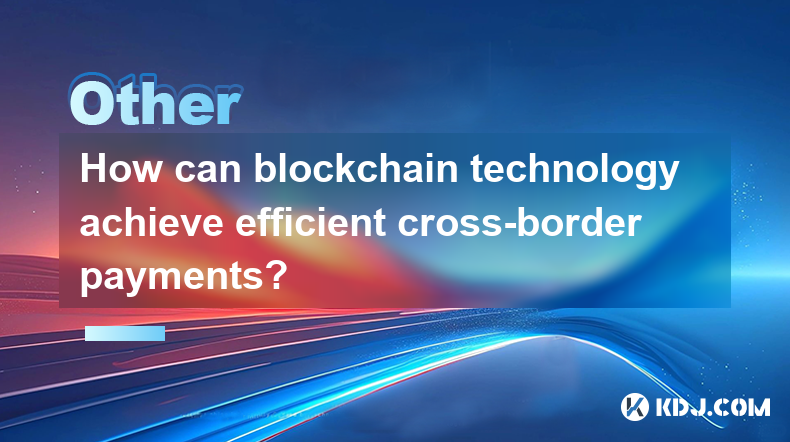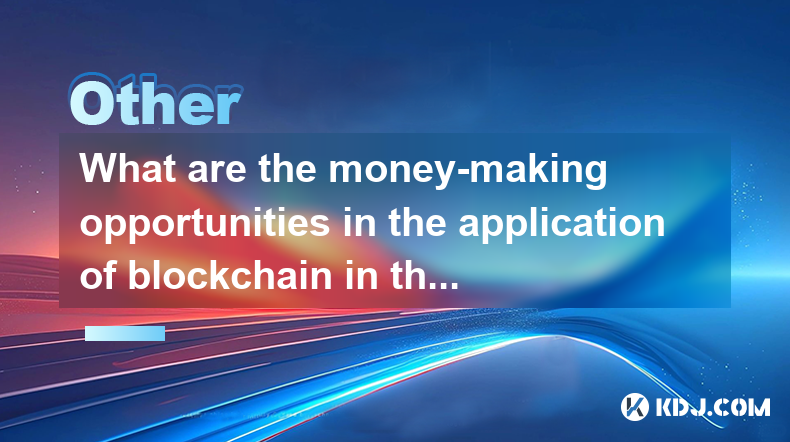-
 Bitcoin
Bitcoin $81,489.5635
-1.67% -
 Ethereum
Ethereum $1,695.4651
-5.18% -
 Tether USDt
Tether USDt $0.9995
-0.01% -
 XRP
XRP $2.0520
-3.51% -
 BNB
BNB $570.9477
-3.69% -
 USDC
USDC $0.9998
-0.01% -
 Solana
Solana $112.8204
-4.54% -
 Dogecoin
Dogecoin $0.1592
-5.32% -
 TRON
TRON $0.2383
0.43% -
 Cardano
Cardano $0.6186
-5.05% -
 UNUS SED LEO
UNUS SED LEO $8.9764
-1.16% -
 Toncoin
Toncoin $3.2746
-0.41% -
 Chainlink
Chainlink $11.9775
-5.49% -
 Stellar
Stellar $0.2502
-0.32% -
 Avalanche
Avalanche $16.9747
-5.28% -
 Shiba Inu
Shiba Inu $0.0...01172
-3.57% -
 Sui
Sui $2.0344
-8.21% -
 Hedera
Hedera $0.1516
-5.77% -
 Polkadot
Polkadot $3.8232
-2.49% -
 MANTRA
MANTRA $6.0922
-3.03% -
 Litecoin
Litecoin $76.7063
-6.65% -
 Bitcoin Cash
Bitcoin Cash $291.2979
-2.40% -
 Dai
Dai $0.9999
-0.02% -
 Ethena USDe
Ethena USDe $0.9986
-0.05% -
 Bitget Token
Bitget Token $4.2790
-3.53% -
 Pi
Pi $0.6120
-0.50% -
 Monero
Monero $203.4248
-5.68% -
 Hyperliquid
Hyperliquid $10.9016
-6.10% -
 Uniswap
Uniswap $5.4430
-6.01% -
 OKB
OKB $52.1906
1.63%
How can blockchain technology achieve efficient cross-border payments?
Blockchain streamlines cross-border payments by eliminating intermediaries, thus reducing costs and processing times while enhancing security and transparency through its immutable ledger.
Feb 28, 2025 at 11:37 am

How Can Blockchain Technology Achieve Efficient Cross-Border Payments?
Key Points:
- Enhanced Speed and Efficiency: Blockchain's decentralized nature eliminates intermediaries, reducing processing times significantly. This contrasts sharply with traditional cross-border payments which often involve multiple banks and clearinghouses, leading to delays.
- Reduced Costs: By removing intermediaries, blockchain can drastically cut transaction fees associated with SWIFT and other traditional payment networks. These fees can be substantial, particularly for smaller transactions.
- Increased Transparency and Security: Blockchain's immutable ledger provides a transparent and auditable record of every transaction, enhancing security and reducing the risk of fraud. This contrasts with the opaque nature of some traditional systems.
- Improved Accessibility: Blockchain can facilitate cross-border payments to and from underserved or unbanked populations, providing access to financial services that might otherwise be unavailable.
- Enhanced Automation: Smart contracts can automate various stages of the cross-border payment process, from initiation to settlement, further increasing efficiency and reducing manual intervention.
Detailed Exploration of Blockchain's Role in Efficient Cross-Border Payments:
- Decentralization and Intermediary Elimination: Traditional cross-border payments rely on a complex network of intermediaries, including correspondent banks, clearinghouses, and payment processors. Each intermediary adds time and cost to the process. A payment might traverse multiple institutions across different countries, each taking a cut and adding processing delays. These delays can range from days to weeks, depending on the complexity of the transaction and the involved jurisdictions. Blockchain technology, however, offers a decentralized alternative. By utilizing a distributed ledger, transactions are recorded across a network of nodes rather than being processed by a central authority. This eliminates the need for intermediaries, streamlining the process and significantly reducing both processing time and costs. The absence of a central point of failure also enhances resilience and security. Consider, for example, a transaction between a business in the US and one in Japan. Traditionally, this would involve several banks, each needing to verify the transaction and charge fees. With blockchain, the transaction could be processed directly between the two parties, with only minimal verification from nodes on the network, leading to a faster and cheaper transfer. Furthermore, the absence of intermediaries reduces the risk of errors and discrepancies, common in complex, multi-stage traditional payment systems. The reduced reliance on trusted third parties also strengthens the system’s overall security and reduces the likelihood of fraud.
- Smart Contracts and Automation: Smart contracts are self-executing contracts with the terms of the agreement between buyer and seller being directly written into lines of code. These contracts automate various stages of the cross-border payment process, from initiation to settlement. For example, a smart contract could automatically release funds to a recipient once certain pre-defined conditions are met, such as verification of goods received or completion of a service. This automation not only accelerates the payment process but also reduces the risk of human error and delays associated with manual processing. Imagine a scenario where a company imports goods from a supplier in another country. Traditionally, payment would involve multiple steps, including issuing a letter of credit, confirming the shipment, and finally releasing payment. With smart contracts, the process could be automated. Once the goods are confirmed as received, the smart contract automatically triggers the payment, eliminating delays and reducing the need for manual intervention. This automation also enhances transparency and accountability, as all transaction details are recorded on the blockchain. The self-executing nature of smart contracts minimizes disputes and ensures that payments are released according to the agreed-upon terms, reducing the reliance on intermediaries for dispute resolution. Moreover, smart contracts can be programmed to incorporate various risk mitigation measures, such as escrow services, to further enhance security and trust.
- Enhanced Security and Transparency: The decentralized and immutable nature of blockchain enhances the security and transparency of cross-border payments. Each transaction is cryptographically secured and recorded on a distributed ledger, making it virtually impossible to alter or delete. This contrasts sharply with traditional systems, where transactions can be vulnerable to manipulation or fraud. The transparency of blockchain also allows all parties involved to track the progress of the payment in real-time, fostering greater trust and accountability. This transparency reduces the risk of discrepancies and disputes, common in traditional cross-border payment systems. The immutable nature of the blockchain ensures that every transaction is permanently recorded, providing a complete audit trail that can be easily accessed by all parties. This is particularly useful for resolving disputes or conducting audits. For instance, if a dispute arises regarding a payment, the blockchain provides an irrefutable record of the transaction, making it easier to determine the facts and resolve the issue. The enhanced security and transparency of blockchain reduce the risk of fraud and errors, improving the overall efficiency and reliability of cross-border payments. This increased trust can also lead to lower insurance costs and reduced operational overhead for businesses involved in international transactions.
- Improved Accessibility and Financial Inclusion: Blockchain can significantly improve accessibility to financial services, particularly for underserved or unbanked populations. Traditional banking systems often exclude individuals or businesses without access to traditional banking infrastructure or credit history. Blockchain, however, does not require reliance on traditional banking systems. This means that individuals and businesses in developing countries or regions with limited banking infrastructure can participate in cross-border payments, promoting financial inclusion and economic empowerment. Consider a small business owner in a rural area with limited access to banks. Traditional cross-border payments might be impractical due to high costs and bureaucratic hurdles. However, blockchain could enable them to receive payments directly from international clients, expanding their business opportunities and improving their financial well-being. This enhanced accessibility also promotes economic growth and development, particularly in regions with limited access to traditional financial services. The reduced reliance on intermediaries also lowers the barrier to entry for small businesses and individuals, allowing them to participate more easily in the global economy.
- Interoperability and Standardization: For blockchain to truly revolutionize cross-border payments, interoperability between different blockchain networks is crucial. Currently, many different blockchain platforms exist, each with its own protocols and standards. This lack of interoperability can hinder the seamless flow of transactions across different networks. Standardization efforts are essential to ensure that different blockchain networks can communicate and exchange data effectively. The development of common standards and protocols will facilitate the wider adoption of blockchain in cross-border payments. This will allow businesses to choose the blockchain network that best suits their needs without being constrained by compatibility issues. Furthermore, standardization will help to reduce the complexity and costs associated with integrating blockchain technology into existing payment systems. The development of interoperable blockchain networks will pave the way for a more efficient and integrated global payment system.
FAQs:
Q: What are the main challenges in implementing blockchain for cross-border payments?
A: While blockchain offers significant advantages, challenges remain. These include regulatory uncertainty, scalability limitations of some blockchain networks (ability to handle a high volume of transactions), the need for interoperability between different blockchain platforms, and the potential for security vulnerabilities if not properly implemented. Furthermore, the lack of widespread adoption and understanding of blockchain technology among businesses and consumers can also hinder its wider implementation in cross-border payments.
Q: How does blockchain ensure the security of cross-border payments compared to traditional systems?
A: Blockchain utilizes cryptography to secure transactions, making them virtually tamper-proof. The decentralized nature of the system means there's no single point of failure, reducing vulnerability to hacking or system failures. Traditional systems, on the other hand, rely on centralized intermediaries, which can be vulnerable to security breaches. The immutable nature of the blockchain also provides a transparent and auditable record of every transaction, making it easier to detect and prevent fraud.
Q: What are some examples of blockchain platforms used for cross-border payments?
A: Several platforms are exploring blockchain applications in cross-border payments, although widespread mainstream adoption is still developing. These include Ripple, Stellar, and various private permissioned blockchains developed by financial institutions for internal use. Many projects are still in the experimental or pilot phase.
Q: How will regulations affect the adoption of blockchain in cross-border payments?
A: Regulatory clarity is crucial for the wider adoption of blockchain in cross-border payments. Governments and regulatory bodies worldwide are still developing frameworks for regulating cryptocurrencies and blockchain technology. Uncertainty around regulations can discourage businesses from investing in and implementing blockchain solutions. Clear and consistent regulatory frameworks will be essential for fostering innovation and promoting the safe and responsible use of blockchain in the financial sector.
Q: What is the future of blockchain in cross-border payments?
A: The future of blockchain in cross-border payments is promising. As technology matures and regulatory frameworks develop, we can expect to see wider adoption of blockchain solutions. This will lead to faster, cheaper, more transparent, and more secure cross-border payments, benefiting both businesses and consumers. However, the pace of adoption will depend on several factors, including technological advancements, regulatory developments, and the level of market acceptance.
Disclaimer:info@kdj.com
The information provided is not trading advice. kdj.com does not assume any responsibility for any investments made based on the information provided in this article. Cryptocurrencies are highly volatile and it is highly recommended that you invest with caution after thorough research!
If you believe that the content used on this website infringes your copyright, please contact us immediately (info@kdj.com) and we will delete it promptly.
- IntelMarkets (INTL) Could Outperform XRP (XRP) in Q2, Offering 400% Presale Gains
- 2025-04-07 01:20:12
- From Ban to Adoption: Bolivia's Cryptocurrency Policy Evolution
- 2025-04-07 01:20:12
- NEO Price Prediction: NEO May Have Bottomed Out and Be Primed for a Bullish Reversal
- 2025-04-07 01:15:12
- As Q2 of 2025 Begins, These 4 Cryptocurrencies Are Poised to Explode
- 2025-04-07 01:15:12
- Market crashes don't have to crush portfolios — UBS says staying calm, holding liquidity, and capitalizing on volatility can turn chaos into a wealth-building advantage.
- 2025-04-07 01:10:12
- Experienced Bitcoin ($BTC) market participants have recently entered a noticeable accumulation phase.
- 2025-04-07 01:10:12
Related knowledge

Is the ranking of Chinese blockchain apps real and reliable?
Apr 04,2025 at 09:01pm
The ranking of Chinese blockchain apps has become a topic of interest for many in the cryptocurrency community, as it provides insights into the popularity and adoption of blockchain technology within China. However, the reliability and authenticity of these rankings are often questioned. This article aims to delve into the factors that influence these ...

What are the future development trends of blockchain game development?
Apr 03,2025 at 05:00am
Blockchain technology has revolutionized various industries, and gaming is no exception. As we look to the future, several trends are set to shape the development of blockchain games. These trends not only promise to enhance the gaming experience but also to integrate blockchain technology more seamlessly into the gaming ecosystem. Let's explore these t...

What are the high-return opportunities for blockchain investments?
Apr 05,2025 at 02:35pm
Blockchain technology has revolutionized the financial world, offering numerous high-return investment opportunities. These opportunities span various sectors within the cryptocurrency ecosystem, including cryptocurrencies, decentralized finance (DeFi), non-fungible tokens (NFTs), and blockchain startups. Each of these areas presents unique risks and re...

What are the maintenance costs of blockchain system development?
Apr 03,2025 at 06:07pm
The maintenance costs of blockchain system development are multifaceted and depend on various factors. These costs can include technical maintenance, security updates, infrastructure expenses, and personnel costs. Understanding these elements is crucial for anyone planning to develop or maintain a blockchain system. Technical MaintenanceTechnical mainte...

What are the money-making models of blockchain games?
Apr 04,2025 at 02:00pm
Blockchain games have emerged as a revolutionary way for players to earn real money while enjoying their favorite pastime. These games leverage the power of blockchain technology to create unique money-making models that benefit both the players and the developers. In this article, we will explore the various money-making models of blockchain games and ...

What are the money-making opportunities in the application of blockchain in the field of Internet of Things?
Apr 05,2025 at 10:35pm
The integration of blockchain technology with the Internet of Things (IoT) presents numerous money-making opportunities. Blockchain, with its decentralized and secure nature, can revolutionize how IoT devices interact, manage data, and conduct transactions. This article will explore various avenues where entrepreneurs, developers, and investors can capi...

Is the ranking of Chinese blockchain apps real and reliable?
Apr 04,2025 at 09:01pm
The ranking of Chinese blockchain apps has become a topic of interest for many in the cryptocurrency community, as it provides insights into the popularity and adoption of blockchain technology within China. However, the reliability and authenticity of these rankings are often questioned. This article aims to delve into the factors that influence these ...

What are the future development trends of blockchain game development?
Apr 03,2025 at 05:00am
Blockchain technology has revolutionized various industries, and gaming is no exception. As we look to the future, several trends are set to shape the development of blockchain games. These trends not only promise to enhance the gaming experience but also to integrate blockchain technology more seamlessly into the gaming ecosystem. Let's explore these t...

What are the high-return opportunities for blockchain investments?
Apr 05,2025 at 02:35pm
Blockchain technology has revolutionized the financial world, offering numerous high-return investment opportunities. These opportunities span various sectors within the cryptocurrency ecosystem, including cryptocurrencies, decentralized finance (DeFi), non-fungible tokens (NFTs), and blockchain startups. Each of these areas presents unique risks and re...

What are the maintenance costs of blockchain system development?
Apr 03,2025 at 06:07pm
The maintenance costs of blockchain system development are multifaceted and depend on various factors. These costs can include technical maintenance, security updates, infrastructure expenses, and personnel costs. Understanding these elements is crucial for anyone planning to develop or maintain a blockchain system. Technical MaintenanceTechnical mainte...

What are the money-making models of blockchain games?
Apr 04,2025 at 02:00pm
Blockchain games have emerged as a revolutionary way for players to earn real money while enjoying their favorite pastime. These games leverage the power of blockchain technology to create unique money-making models that benefit both the players and the developers. In this article, we will explore the various money-making models of blockchain games and ...

What are the money-making opportunities in the application of blockchain in the field of Internet of Things?
Apr 05,2025 at 10:35pm
The integration of blockchain technology with the Internet of Things (IoT) presents numerous money-making opportunities. Blockchain, with its decentralized and secure nature, can revolutionize how IoT devices interact, manage data, and conduct transactions. This article will explore various avenues where entrepreneurs, developers, and investors can capi...
See all articles





















































































